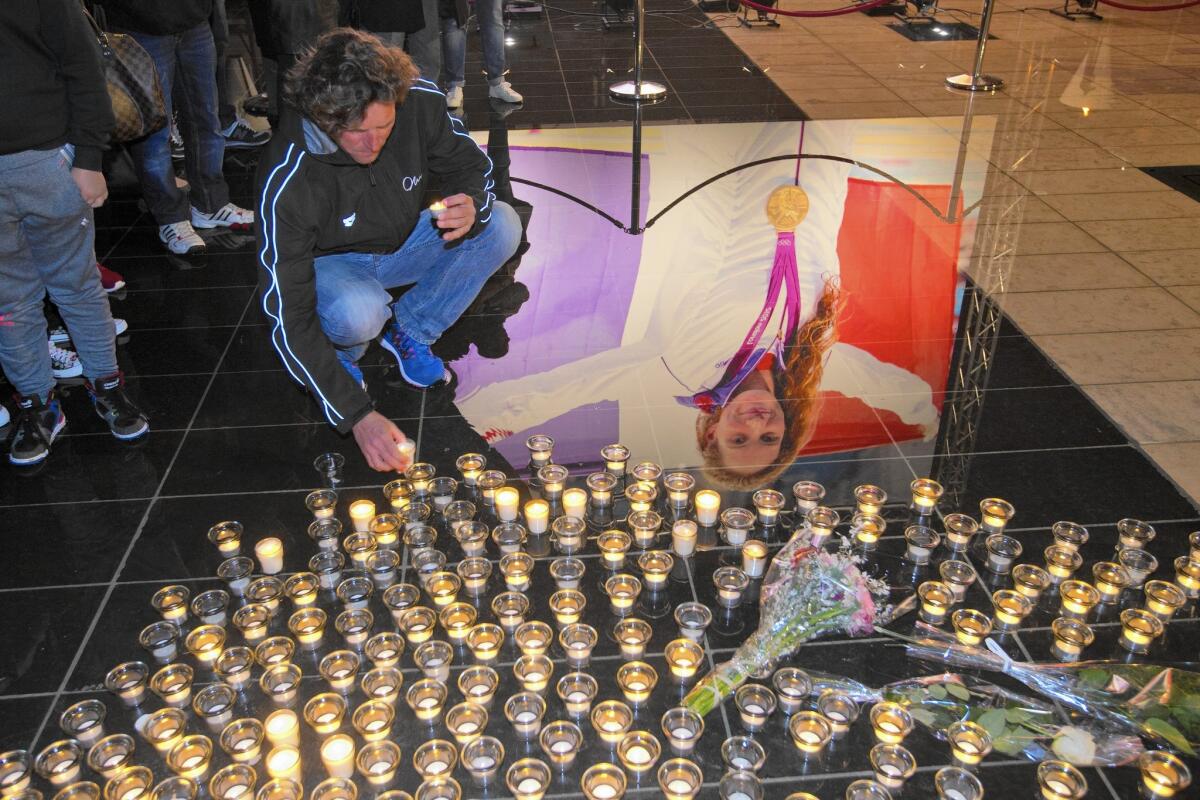Critic’s Notebook: Fatal helicopter crash shows high cost of reality TV entertainment

- Share via
The recent in-air collision of two helicopters in Argentina during production of a French TV reality show left 10 dead and many wondering about the high cost of cheap entertainment.
The devastation in South America is yet another strike against a genre that has already endured all manner of highly publicized and distressing realities of late — including revelations that “Here Comes Honey Boo Boo” star June Shannon was dating a convicted child molester and Bruce Jenner’s recent involvement in a fatal car crash.
Early producers may have touted groundbreaking shows such as “Big Brother,” “Survivor” and “The Hills” as sociological experiments or a new insight into the human drama, but the subsequent explosion of reality television wasn’t a collective rush to wisdom so much as a race to wider profit margins.
Reality shows have always been less expensive to make than scripted shows because they involve fewer people, many of them nonprofessionals, who work for much less money than those involved in more traditional comedies and dramas. Which is why they were seen as an answer to audiences divided by ever increasing platforms.
Why do you think the TV industry was quaking in its boots all those pre-Renaissance years, when prime-time broadcast television had become a cavalcade of contests and cable a parade of extreme parenting, pawn shops and bickering women?
Because so many writers, actors and directors were suddenly out of work, replaced by new folks who were making much less money.
Though viewers quickly figured out that reality shows were written and directed almost as carefully,
if not as artfully, as any scripted show, it didn’t matter. There remained something hypnotic about a genre that encouraged off-road meltdowns, that celebrated the petty and the banal, that dismantled the notion of on-screen/off-screen behavior.
Rising arm-in-arm with social media, reality reinvented celebrity and made privacy anachronistic; everything was fodder for entertainment. That it rocked the industry establishment only added to the edginess. For a while, anyway.
It was great to see how “real” people “lived,” at least until they said something truly racist or homophobic, or were indicted for fraud, or began dating a child molester. We cheered for the Average Americans made famous overnight, until the pressures of being on television caused some of them to divorce, overdose or commit suicide.
“Reality” is, of course, an enormous tent. Over the years, many fine non-scripted series found long-standing success with clever conceits (“The Amazing Race,” “Queer Eye for the Straight Guy,” “Project Runway” “Face/off”) or popular personalities (Gordon Ramsay, the Kardashians, RuPaul, the Osbornes). But many others survived, and multiplied, because they were so inexpensive to make.
They used non-actors and new writers who were willing to work far below union standards — the Writers Guild tried to organize reality-show writers to assure fair wages and benefits, to no avail — and boasted of low production costs.
But as every industry discovers sooner or later, cost-cutting is not a long-term business plan. Scripted shows, kept alive by premium cable outlets during the dark times, came back with a vengeance. First, they did so via new or transitioning basic cable networks then — as the television industry adjusted to smaller audiences — to the Big
Four, as well as streaming services like Netflix and Amazon.
The scripted television industry has never been stronger, while reality programming, once perceived as the future of television, has lost steam. “American Idol” is a shadow of its former self, and with a few notable exceptions such as “MasterChef Junior,” recent debuts reeked of desperation: “Dating Naked,” “Naked and Afraid,” “Sex Box.”
The television industry is still trying to figure out the economics of this new age, but doing it on the cheap is no longer the standard.
Shows are judged more for their high production values than their low production costs, especially if it involves the safety of its creators.
More to Read
The complete guide to home viewing
Get Screen Gab for everything about the TV shows and streaming movies everyone’s talking about.
You may occasionally receive promotional content from the Los Angeles Times.







